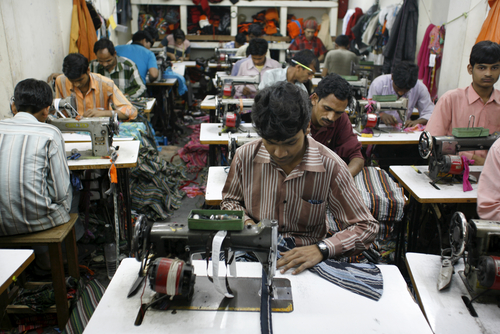Some have called the clothing and textile factories in South Asia “death traps.” And many would find it hard to argue otherwise, taking into account the region’s spate of factory fires in recent months.
In September, 289 people perished during a fire in a Pakistani textile factory complex. As is the case in many of these tragedies, workers were trapped behind locked doors and windows were barred. That same month, a fire at an India fireworks factory killed 34.
So what’s the deal with South Asia’s factories?
As Business Insider states:
Several factors combine to make death traps of factories across south Asia. In many instances, exits have been padlocked, basements used as store rooms for highly flammable raw materials and no fire escapes installed, while smoke alarms or sprinkler systems are unheard of.
buy cipro online https://galenapharm.com/pharmacy/cipro.html no prescription
Adding to that is the fact that fire services in South Asia are not properly or comprehensively trained and resources are lacking. In addition, because of lax zoning requirements, factories are often erected and operated within crowded residential areas. In India, industrial zones and overcrowded slums combine to create a horrific fire hazard.
And let’s not forget corruption that is rampant among South Asian countries, an area where government inspectors are easily and often paid off.
There have been more than 600 factory fire deaths in Bangladesh over the last five years. The industry has been warned time and time again, but has taken no action to prevent future fires. As ABC News reports, the brands associated with the fatal fire include Faded Glory (Walmart), Sears clothing brands and a clothing company owned by Sean Combs, who is better known as rap mogul P. Diddy.
The Clean Clothes Campaign, an initiative dedicated to improving working conditions in the global garment industries, has called for immediate action from international brands.
“These brands have known for years that many of the factories they choose to work with are death traps,” said Ineke Zeldenrust from the Clean Clothes Campaign. “Their failure to take action amounts to criminal negligence.
buy pepcid online www.artforhealingfoundation.org/wp-content/uploads/2023/10/jpg/pepcid.html no prescription pharmacy“
Though criminal negligence may be the worst charge against these brands, they also face severe reputational damage. But it begs the question — how many factory fires will it take to motivate regional governments to create a safer working environment in the region’s fabric and textile factories?
Note: This article has been edited to highlight that this is a regional problem not confined to India.

